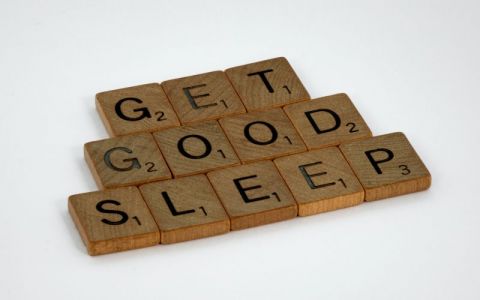10 Tips to Improve Your Sleep and Wake Up Refreshed

Healthy sleep
After a busy day from morning to night, it can sometimes be difficult to fall asleep, even though we need sleep so badly to recover. That’s why we’ve compiled nine tips to help you achieve a good night’s rest naturally. Check out our sleep improvement programs here!
9x tips for a good night sleep
1. Why can't you sleep? It's probably because your body is still in a state of alertness, which is necessary to perform and react throughout the day. To sleep well, your nervous system needs a signal that it can switch into relaxation mode. The only way to do this is by relaxing. So, build in a wind-down moment early in the evening, where you turn off your phone and computer and consciously unwind. This will calm your nervous system before you go to bed.
2. Ten o'clock is the best time to go to bed in terms of your natural rhythm. When we stay awake past this time, the body thinks something is wrong and starts producing the stress hormone cortisol. This makes us feel awake and energetic, allowing us to go for a few more hours, but it drains our body’s energy. It doesn’t get the time it needs to recharge. Does 10 p.m. seem too early? Experts claim that after a few nights of trying, anyone can fall asleep at this time. The bonus of going to bed early is waking up naturally between 5 and 7 a.m. In the early morning, hormones are released that help us wake up, making it easier to get out of bed.
3. Your environment affects the quality of your sleep. It's best to keep TVs, computers, or any other objects that remind you of the busy daytime life out of the bedroom. We sleep best in a calm and peaceful room, with a temperature around 16 to 19 degrees Celsius.
4. A foot massage or foot bath with essential lavender oil is highly effective for falling asleep. Slip on some socks afterward and dive into bed.
5. Magnesium calms the nervous system. That’s why it's a good idea to take a magnesium supplement in the evening. Take a 300-500 mg pill daily until your sleep rhythm is balanced.
6. Going to bed with a full stomach isn’t a good idea. Digesting food requires energy, while sleeping is meant to give the body rest. Try not to eat anything for at least three hours before going to bed, and it’s also best not to drink an hour before bed to avoid waking up for bathroom trips.
7. As soon as the eyes detect light, the brain gets a signal to wake up. It responds by becoming active, especially the thinking part of the brain. That’s why a sleep mask works well. It keeps light out, preventing brain stimulation. For the same reason, it’s not a good idea to watch TV or use a computer right before bed. The bright light from these devices stimulates the brain and keeps it awake.
8. Herbal tea has a calming and relaxing effect. So, have a cup of chamomile or mulberry tea before bed. Even better, drink a cup of rooibos tea, which is rich in minerals, including magnesium, that calm the nervous system. Avoid caffeinated drinks and alcohol. While a nightcap might help you doze off, alcohol reduces the quality of sleep. You’ll wake up more often during the night and feel less refreshed in the morning.
9. If the above tips don’t help, acupuncture might be a solution. Many people with sleep issues have benefited from it. Acupuncture can restore balance in the nervous system, helping to calm an overactive mind.

 EN
EN NL
NL BE
BE















